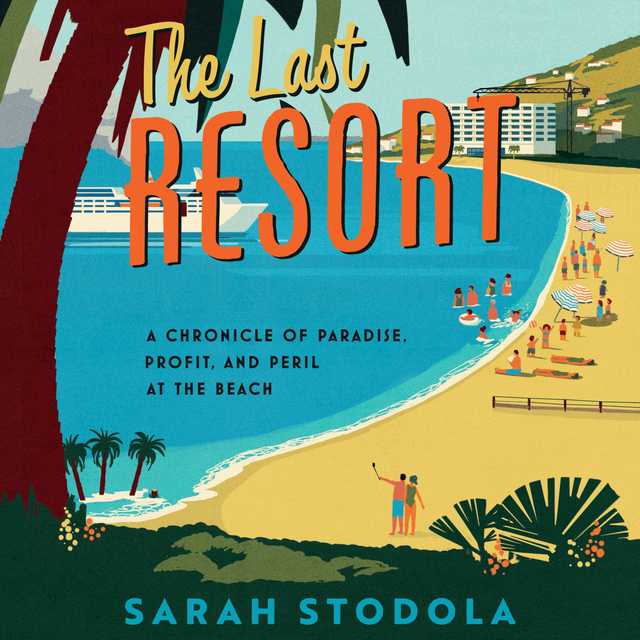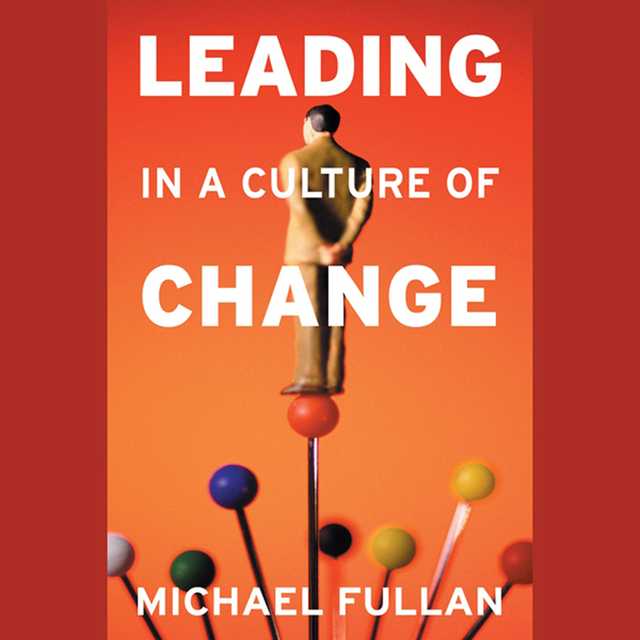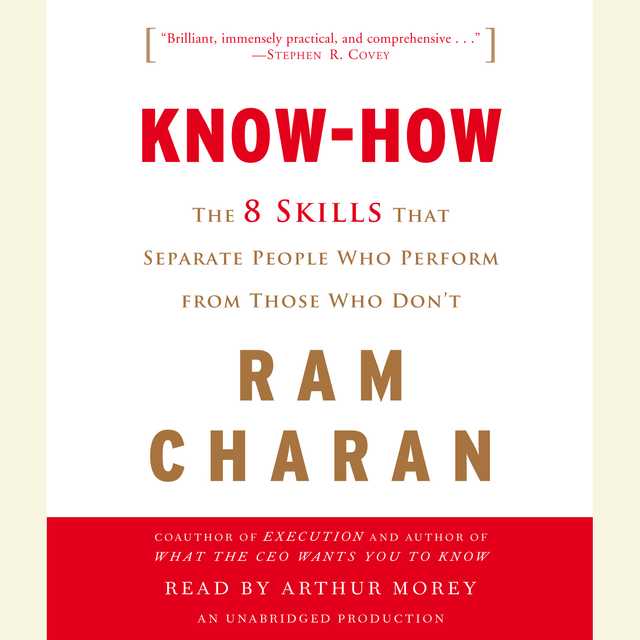The Last Resort Audiobook Summary
A captivating exploration of beach resort culture–from its roots in fashionable society to its undervalued role in today’s world economy–as the industry approaches a climate reckoning.
With its promise of escape from the strains of everyday life, the beach has a hold on the popular imagination as the ultimate paradise. In The Last Resort, Sarah Stodola dives into the psyche of the beachgoer and gets to the heart of what drives humans to seek out the sand. At the same time, she grapples with the darker realities of resort culture: strangleholds on local economies, reckless construction, erosion of beaches, weighty carbon footprints, and the inevitable overdevelopment and decline that comes with a soaring demand for popular shorelines.
The Last Resort weaves Stodola’s firsthand travel notes with her exacting journalism in an enthralling report on the past, present, and future of coastal travel. She takes us from Monte Carlo, where the pursuit of pleasure first became part of the beach resort experience, to a village in Fiji that was changed irrevocably by the opening of a single resort; from the overdevelopment that stripped Acapulco of its reputation for exclusivity to Miami Beach, where extreme measures are underway to prevent the barrier island from vanishing into the ocean.
In the twenty-first century, beach travel has become central to our globalized world–its culture, economy, and interconnectedness. But with sea levels likely to rise at least 1.5 to 3 feet by the end of this century, beaches will become increasingly difficult to preserve, and many will disappear altogether. What will our last resort be when water begins to fill the lobbies?
Supplemental enhancement PDF accompanies the audiobook.
Other Top Audiobooks
The Last Resort Audiobook Narrator
Ann Marie Gideon is the narrator of The Last Resort audiobook that was written by Sarah Stodola
SARAH STODOLA has written about travel and culture for the New York Times, Slate, the Wall Street Journal, and the BBC, among others. She is the author of Process: The Writing Lives of Great Authors and the founder and editor of Flung, a publication that challenges assumptions about travel.
About the Author(s) of The Last Resort
Sarah Stodola is the author of The Last Resort
More From the Same
- Publisher : HarperAudio
- Abraham
- American Gods [TV Tie-In]
- Dead Ringer
- House of Sand and Fog
- Prey
The Last Resort Full Details
| Narrator | Ann Marie Gideon |
| Length | 11 hours 50 minutes |
| Author | Sarah Stodola |
| Category | |
| Publisher | HarperAudio |
| Release date | June 28, 2022 |
| ISBN | 9780062951649 |
Subjects
The publisher of the The Last Resort is HarperAudio. includes the following subjects: The BISAC Subject Code is Business & Economics, Commercial, Real Estate
Additional info
The publisher of the The Last Resort is HarperAudio. The imprint is HarperAudio. It is supplied by HarperAudio. The ISBN-13 is 9780062951649.
Global Availability
This book is only available in the United States.
Goodreads Reviews
AndiReads
July 29, 2022
Do you love the beach and look forward to your annual summer pilgrimages? Curiously, our ancestors did not! The Last Resort reports on the history of beach worship and tourism development throughout the world. It's incredibly interesting to see the history of each area, the impact tourism has had on the nation as a whole and the indigenous people and environment in the developed areas. Sarah Stodola is a travel writer and she includes her own experiences in each of the areas covered. The book reads almost like a story and is very enjoyable but will surely change your view of the beach. Are you a beach lover or armchair traveler? Do you want to learn more about the history of beach worshiping? This book is for you!#Netgalley #Netgalleyreads #TheLastResort #SarahStodola
scams
July 12, 2022
an interesting look at beach resort culture and it’s transformation from exclusive luxury vacations to overdeveloped sprawl. appreciated the time that stodola took to speak about the environmental and cultural impacts that mass tourism have on the local population. the hopeful spin on ways the industry can perform better and ways they’re already working to alleviate negative impact was also refreshing. things can get better! recommend to any microhistory lovers.
Sara
August 09, 2022
Interesting reading for all and required reading for anyone who gets a kick out of a beach vacation! I love a good industry evisceration and Stoldola definitely delivers. The history in this book (like how Monaco led the way to the casino/beach relationship, the rise of all-inclusive resorts via Club Med in Italy, etc) was where this book shone for me because for those of us who work in the industry, we already know how awful beach resorts are be for environment and Stodola does a great job of laying out why they suck in the first 180 pages. She shifts gears a bit toward the end and starts highlighting a few places that do it right like Nihi Sumba as in: low volume, high yield tourism. It's not a cool thing to say outright but the author does a good job of getting the point across without actually saying it bluntly enough to piss off every middle class traveler but: 20 couples paying 1k a night = better for a place than 200 couples paying $100 a night. The environmental impact of 40 people over the course of a week is a fraction of what 400 do & the resources used. Like I said though, it's not cool to say but it is what it is. And that's just the environmental impact. Feeding, serving, etc that amount of people in these mega resorts leads to high staff turnover rates, terrible wages, imported foods, excessive water use, excessive pollution, energy consumption, and so on and so forth / things that the boutique, high-end resorts (not fake high-end, boutique high-end) have stamped out with livable wages, reinvestment in the community, investment in environment, bottling their own water in glass via rain and growing their own organic food (like Jade Mountain in St. Lucia - which honestly, personal love of that place aside, does a great job - no AC in the rooms, a vegan restaurant, 3 walls so it's cooled naturally, organic farm, lionfish removal programs, low volume high-yield guests, maintenance of coral reef parks etc). You can feed 40 people from an organic, local farm on a small island. Not 400.Stodola also take a sharp aim at the airline industry and how it's the flight that makes all travel completely un-green. I know this already but this part still made me feel guilty AF because I have a long haul flight coming up but I just found out that buying carbon offsets for it will only be $220 more, which when compared to the ticket cost, is fractional. So maybe airlines need to start doing that anyway (which I thought they were?) or maybe when you buy your ticket there can be a box to check for carbon offsets and its automatically calculated into its cost so it's easier for all of us to make that decision. To exist in this world means you're f-ing it up some way. Fast fashion, agriculture, energy, and transportation are the absolute worst with regards to environmental devastation (and humanitarian esp. with fast fashion), but reading books like The Last Resort will help in knowing which red flags to look for when booking your next beach vacation and how to mitigate your impact by making better choices. Often in this messy world with so much smoke and mirrors, I feel like trying to make the best choices we can with the knowledge we have is all we can do. Also, this delightfully dry part in Tulum made me LOL: "I pass a sandwich board advertising sound healing on Friday nights, a gong bath on Saturday. When I look it up later, the resort's website says the latter will open up your chakras and release blocked energies. Who needs a functioning sewer system in Tulum when you have access to a gong bath, I guess."
Dan
February 11, 2023
"If there’s heaven for me, I’m sure it has a beach attached to it."~ Jimmy Buffett"The presumed universal appeal of beaches has been mirrored back to us by the media, leaving little room for serious consideration of the major global industry that has bred economic and social inequalities in many a locale, as well as contributed to the climate crisis while coming under existential threat from it- a paradise both threatening and threatened."Sarah Stodola Life's a beach. That concept has been drilled into my head since I first set foot on one. Being from the Midwest, I rarely make it to the beach, but for many years I've envied people who could laze around a beach resort and live the lifestyle that we're all supposed to aspire to. But like everything that seems to be too good to be true, beach resorts have a dark side. Rarely do we get to see that dark side, but it's on full display in this book- The Last Resort. Sarah Stodola is a travel writer and editor from New York who has written for the New York Times, Wall Street Journal, and New Yorker and this is her second book. It's easy to get a little jealous of a privileged white woman who has trotted across the globe checking out its most famous and exclusive beaches. Stodola obviously likes beach culture and lifestyles, but maybe that makes her the perfect person to try and take them down. One thing that I had not realized before reading this book is that beach resorts are a relatively new invention. Up until the late 19th century, beaches were ignored, feared and avoided because of the natural disasters and dangers that were present back then. That all changed with the European development of beach hotels and resorts on the sunny shores of France, Greece, and Italy. The wealthy of that age used the Gatsby-esque atmosphere of these decadent resorts to flaunt their riches and escape the cold winters of their native cities. Things have only gotten worse as beach culture has exploded in the 20th and 21st centuries, with the wealthiest 1% leading the way. Beach vacations are now something to brag about, one of the ultimate status symbols, and the middle class has rapidly caught on. Middle class families that can afford it have flocked to the beaches as well, causing congestion and over-crowding that threatens the peaceful laid-back atmosphere of the "paradise" that we all seem to want to get away to. Stodola points out that while the American middle class is mostly stagnating, the Asian middle class- especially that of India and China, is exploding, with the travel industry increasingly catering to those new customers. The book discusses a well-established development cycle that can be seen by most resort areas, and the author travels to examples of most of them. First is the Exploration stage, where the most adventurous travelers seek out remote beaches with few amenities and start spreading the word. Then comes the Involvement stage, when repeat customers entice the local population to begin to offer services like lodging and food. The real break comes with the Development stage, when large outside companies build larger hotels and take over most of the functions that the locals had been providing. That is followed by the Consolidation stage, when a resort area hits its peak, and tourism becomes the main driver of the area economy. Inevitably that is followed by the Stagnation and Decline stages, when over-development, overcrowding, and environmental degradation causes beach areas to lose their popularity as tourists find newer and shinier places to visit. She visited Senegal, which is still in the early stages of the cycle, Indonesia's Bali, that's at the peak, and Acapulco, that's heading downward thanks to concerns about violence there. Most of the book is here travelogue of the many countries and beaches that she visited, and how they fall along the development timeline. Some areas have been smart about developing, and some have been reckless, but money talks, and the enormous wealth that has accumulated over the decades in the richest countries has turned the most idyllic locales like Hawaii, Fiji, and the Caribbean into tourist traps where economies revolve around well-heeled foreigners spending their money and pretending to care about local customs. The biggest cloud hanging over most of these resorts is climate change, and the rising ocean levels that threaten to wipe them out. Ocean levels are currently rising, with an expected 1 foot rise by 2050 and perhaps 3 feet by the end of the century. This rise will radically transform beach fronts, eroding most of the sandy beaches as we know them and flooding streets. Seawalls that are put in to protect high rises cause problems after solving others. Many resort areas are already having to resort to transporting in new sand from other locations to restore beaches, but that will only get harder to do as sea levels rise. Stodola devotes one whole chapter to Miami Beach, as thin sand island at the forefront of climate change. While the state's governor refuses to acknowledge climate change, the leaders of Miami Beach are rapidly trying to adapt by raising roads and replenishing beaches as flooding is becoming more and more common there. Resort development, like most other development, has been done with little concern for the local environment. Golf courses use enormous amounts of water and are out of place in seaside areas. Palm trees (most of which are imported) are inefficient at stabilizing sandy areas, and their shallow roots allow them to be knocked over with ease. Mangrove trees, that thrive in shoreline wetlands, have been removed and the wetlands filled in, with the stability that they offered gone. Offshore coral reefs are dying due to higher water temperatures, leaving beaches unprotected and wiping out diverse ecosystems. Stodola finished the book with a list of well-informed recommendations, few of which have much hope of happening, but all of which make sense. They include:- Discourage long airplane flights to remote areas. The carbon footprint from these flights is enormous, as is the footprint from importing everything needed to build resorts in remote areas.- Source resorts locally. Most high-end resorts get wine, seafood, and produce from all over the world and have it shipped in for the convenience of their guests. More of what a resort consumes should be from local sources to minimize carbon and maximize the local economy.- Stop building high-rises right next to the beach. Concrete and sand don't mix. Build further away to preserve beach health and minimize climate change flooding.- Be more inviting to locals. To make their property more exclusive, local residents are discouraged from frequenting the same bars, restaurants and beaches as resort guests. They are only used as employees, and told to be polite and take care of the guests, no matter how rude or entitled they might be. Resorts should be more inclusive and integrated with the local population to - Make hotels have skin in the game. In many areas, the local governments take on the huge responsibility of taking care of the ever-changing beaches. Resorts benefit from their work, sending many of the profits out of the country to corporate shareholders. If the beach is your main draw, you should have to pay to keep it up.- Limit tourist numbers. A few countries are trying this, and it works to prevent overuse and over-development. Capitalism's guiding principle of more is always better flies in the face of this, but a balance between recreation and environment is what has been missing from many of these resorts as they proceed through the development cycle. One night in a luxury resort can run anywhere from $500-$1,000. Add in expensive meals, long flights, and side trips, and most of these resorts can cost $20,000 or more for a week's stay, well out of reach of all but the wealthiest. These resorts promise paradise, but it is all an illusion. The locals know better. Mind you, beaches can be very relaxing and enjoyable places. I think everybody should have the chance to enjoy one, as long as it doesn't break their budget and destroy the beach. There's something even more powerful about beaches, and that's the idea of what water does to our spirit. Water has the power to relax us and spiritually renew us, and I highly recommend a book called Blue Mind, which I reviewed here, if you really want to get the benefits of a beach without going to one. Rivers, lakes, and fountains can provide many of the same benefits. If you want to feel better about not blowing $20K on a beach vacation, this is a good book to read. It made me appreciate my Midwestern environs more and not envy rich vacationers near as much.
Casey
July 11, 2022
What a fantastic, throughly researched, entertaining and inspiring read. Everything you’d want in a book of educational nonfiction essays. Will be thinking about so many of these chapters for so long.
Karen
April 09, 2022
This is part history of the beach resort and part appeal to stop the creation of "typical" resorts as we've come to know them. Stodola is a travel writer and writes about her visits to a number of far-flung beaches around the world. Her writing fleshes out what another writer calls the tourist area cycle evolution and how development first benefits the country where resorts begin but then, without thoughtful oversight, can damage the environment and wear out the local population and even the very beaches that first drew travelers. She concludes with a list of ways to improve both existing and future resorts--it won't be easy, but it may well be necessary. I learned a great deal here and will definitely consider the author's recommendations when planning my next trip. Recommended
Cat
March 08, 2022
I've never been a fan of resorts or cruise ships, but love histories! This informative book was really interesting. I enjoyed it from start to finish. It points out the when, where, why, how, and by who, the beach culture and resorts were created- and for who. The author has seriously done her homework; kudos Sarah Stodola!Must read for anyone who goes to, or is thinking of going to, a resort.I received a Kindle arc from Netgalley in exchange for a fair review.
Carolyn
October 05, 2022
An engaging book about the history, economics and environmental impact of beach resorts around the world. The author has traveled widely and spoken with employees and tourists at these resorts as well as local people affected by changing tourism patterns. She captures the similarities and differences between the various beach experiences from mass market all inclusive resorts in Cancun to an island that caters to very wealthy travelers in Indonesia where you can watch turtles hatch. There is sometimes a negative tone to the description of resort experiences. Despite spending so much time at beach resorts, the author rarely seems to be having a great time. The book really shines when she finds a place that she enjoys including the Villa Lara in Portugal and her visits to Miami Beach. In other chapters, there are a few too many critiques of the food and her fellow tourists (especially children). A good read, especially for anyone planning a beach vacation.
Jo
August 30, 2022
This book was unusual and very well-researched. I have visited several of the places in the book, though I am not nearly as adventurous as the author. Some of the spots I’ve always wanted to visit don’t sound worth the trip. So, this book saved me some money and long flights. Though I’ve been to many Mexican beaches I’ve always avoided the new wave vibe of Tulum, and this book tells me I made the right decision. In general, I prefer cities steeped in history to beaches so a little Cape Cod, Maine, Yucatan coast, and Acapulco are more than enough for me. We recently returned from a pretty beach in Bermuda. The tourist bureau promised there would be chair and umbrella rentals. There weren’t, I struggled in the undertow and then the rain came. To me, that’s the reality of a beach vacation.
Heather
December 27, 2022
Wow. just had my romantic notions about travel shattered, and I'm glad for it. I was totally ignorant about the environmental impact of tourism, resort and beach culture, golf courses.... Has me totally rethinking what I know, and what I want out of a vacation.
Erin
January 27, 2023
My perfect book. A beautiful interrogation of The Beach as a concept and its impact on places and the environment. I especially loved that Stodola doesn't condemn those who enjoy the beach, but instead reminds us to be mindful
Mackenzie
June 27, 2022
The Last Resort is a fascinating, well-researched, in-depth look at the past, present, and future of beach tourism and beach resorts across the globe. The author balances academic research with her own travel experiences. The last two chapters tie the entire book together nicely and offer lots of thought-provoking ideas and conversation topics. For me, in addition to the last two chapters, I found the chapters on Fiji and the resort development cycle to be particularly interesting and well-written. I will definitely recommend The Last Resort, especially as a 2022 summer read!
Most Popular Audiobooks
Frequently asked questions
Listening to audiobooks not only easy, it is also very convenient. You can listen to audiobooks on almost every device. From your laptop to your smart phone or even a smart speaker like Apple HomePod or even Alexa. Here’s how you can get started listening to audiobooks.
- 1. Download your favorite audiobook app such as Speechify.
- 2. Sign up for an account.
- 3. Browse the library for the best audiobooks and select the first one for free
- 4. Download the audiobook file to your device
- 5. Open the Speechify audiobook app and select the audiobook you want to listen to.
- 6. Adjust the playback speed and other settings to your preference.
- 7. Press play and enjoy!
While you can listen to the bestsellers on almost any device, and preferences may vary, generally smart phones are offer the most convenience factor. You could be working out, grocery shopping, or even watching your dog in the dog park on a Saturday morning.
However, most audiobook apps work across multiple devices so you can pick up that riveting new Stephen King book you started at the dog park, back on your laptop when you get back home.
Speechify is one of the best apps for audiobooks. The pricing structure is the most competitive in the market and the app is easy to use. It features the best sellers and award winning authors. Listen to your favorite books or discover new ones and listen to real voice actors read to you. Getting started is easy, the first book is free.
Research showcasing the brain health benefits of reading on a regular basis is wide-ranging and undeniable. However, research comparing the benefits of reading vs listening is much more sparse. According to professor of psychology and author Dr. Kristen Willeumier, though, there is good reason to believe that the reading experience provided by audiobooks offers many of the same brain benefits as reading a physical book.
Audiobooks are recordings of books that are read aloud by a professional voice actor. The recordings are typically available for purchase and download in digital formats such as MP3, WMA, or AAC. They can also be streamed from online services like Speechify, Audible, AppleBooks, or Spotify.
You simply download the app onto your smart phone, create your account, and in Speechify, you can choose your first book, from our vast library of best-sellers and classics, to read for free.
Audiobooks, like real books can add up over time. Here’s where you can listen to audiobooks for free. Speechify let’s you read your first best seller for free. Apart from that, we have a vast selection of free audiobooks that you can enjoy. Get the same rich experience no matter if the book was free or not.
It depends. Yes, there are free audiobooks and paid audiobooks. Speechify offers a blend of both!
It varies. The easiest way depends on a few things. The app and service you use, which device, and platform. Speechify is the easiest way to listen to audiobooks. Downloading the app is quick. It is not a large app and does not eat up space on your iPhone or Android device.
Listening to audiobooks on your smart phone, with Speechify, is the easiest way to listen to audiobooks.






























